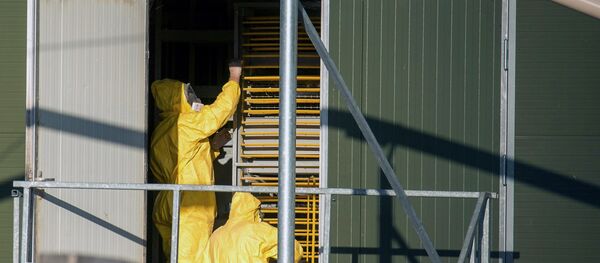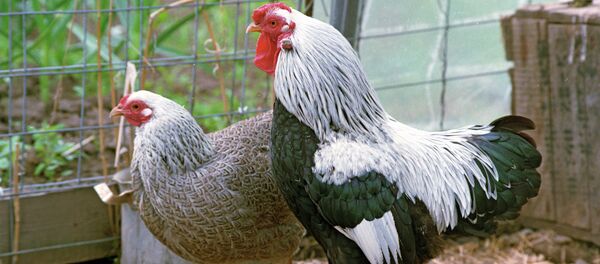The H5N8 strain was confirmed on November 22 at a breeding poultry farm in the village of Kamperveen in the Dutch province of Overijssel, followed by outbreaks in western Netherlands.
"Following outbreaks of the highly-pathogenic H5N8 strain of the bird flu in the Overijssel and South Holland provinces, a temporary ban on imports of live poultry and hatching eggs from these provinces will be imposed starting December 12," Rosselkhoznadzor said in a statement on its website.
In November, bird flu outbreaks were detected in the Dutch towns of Hekendorp, Ter Aar, Kamperveen and Zoeterwoude, prompting the government to introduce a raft of urgent measures that included bird culls, security zones around the infected farms, hunting bans and the total transport ban for poultry and eggs.
A statement at the Dutch government's webpage cited experts as saying that the virus apparently made it into the country through wild ducks. Migrating water fowl is believed to be natural carriers of bird flu viruses.
On October 21, Russia's agriculture authority restricted for health reasons all imports of cattle, swine and poultry by-products from Europe, saying pathogenic germs and heavy metals had been repeatedly detected in the food imports from EU producers.



